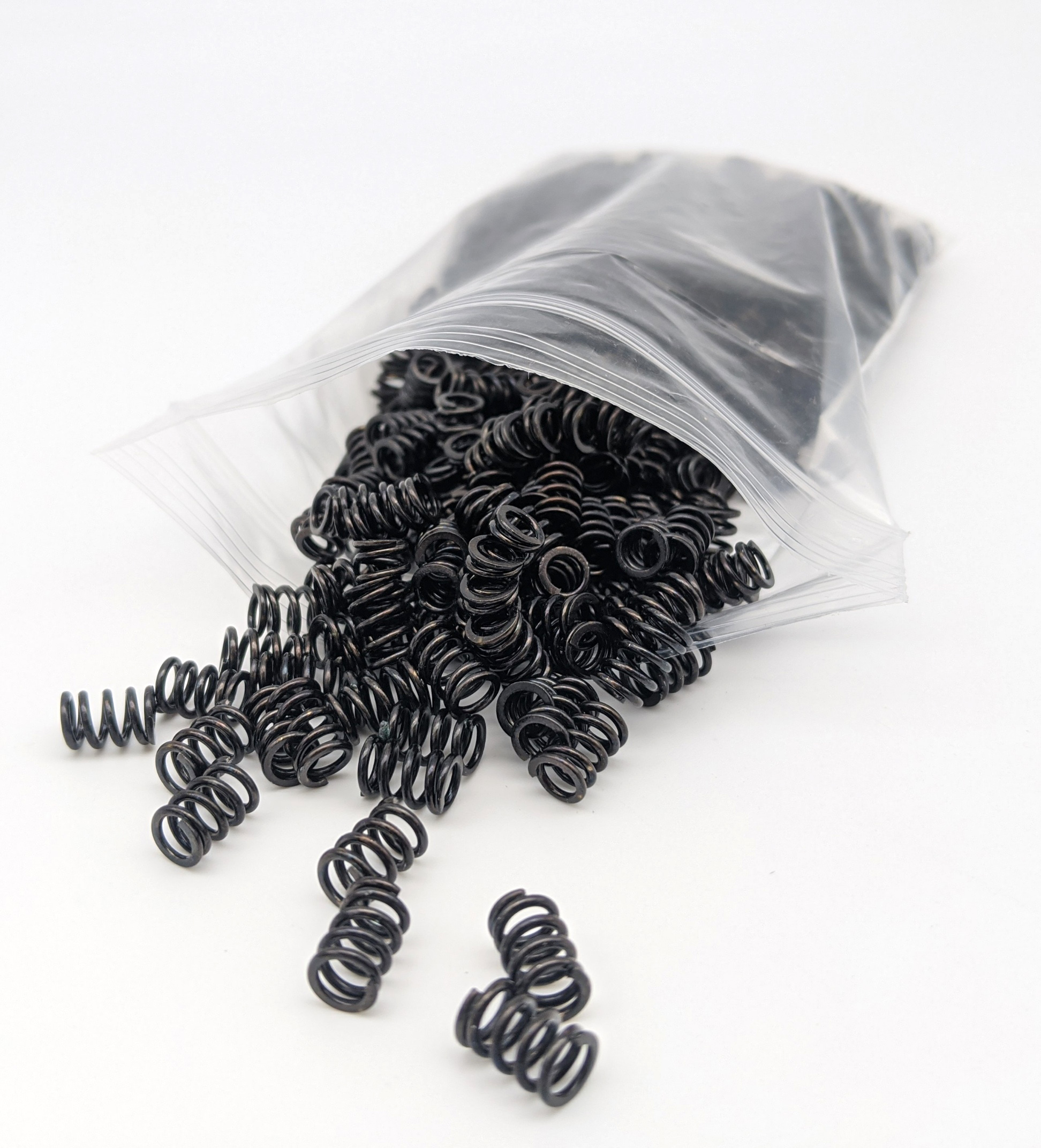Get unique, complex parts easily. No matter your requirements, Chaoyi Spring creates hard-to-produce coil springs and wire forms.
Let us help you create the custom wire form you need, from S-hooks and J-hooks to utility hooks and more.
We work closely with customers across a wide range of industries, helping them design and manufacture made-to-order parts.
Why choose Chaoyi Spring? We prioritize customer-focused collaboration, modern equipment and the latest technology to make your parts per print.
Find the information and guidance you need, from measuring a spring to learning about materials, placing an order and much more.
You might not think much about your garage door torsion springs, but they're the workhorses that make your heavy door open and close smoothly. They're like the hidden heroes of


You might not think much about your garage door torsion springs, but they're the workhorses that make your heavy door open and close smoothly. They're like the hidden heroes of your home, silently doing their job day after day. But just like any hero, they can get worn out and need replacing. Understanding how these springs work and when to replace them is crucial to ensuring your garage door operates safely and efficiently.

Garage door torsion springs are essential components responsible for lifting and lowering your heavy garage door. They are coiled metal springs, typically made of hardened steel, that are mounted above the door on a shaft. These springs store potential energy when stretched and release that energy when contracted, making it easier to open and close your garage door. Imagine trying to lift a heavy garage door manually – it would be a Herculean task! Torsion springs do the heavy lifting for you, allowing you to effortlessly operate your garage door.
Torsion springs are typically placed on a shaft above the garage door. They are attached to the door's lifting cables, which are connected to the door itself. When you open the garage door, you stretch the springs, storing potential energy. When you let go, the springs contract, pulling the cables and lifting the door. The opposite happens when you close the door – the springs are compressed, and the stored energy helps lower the door. This interplay of tension and compression ensures smooth operation and prevents the door from slamming down.
Torsion springs are crucial for the safe and efficient operation of your garage door. Here's why:
• **Safety:** Worn-out torsion springs can break suddenly, potentially causing serious injury. They can also cause the door to come down unexpectedly, leading to damage or accidents. • **Efficiency:** Torsion springs significantly reduce the effort required to operate your garage door. Imagine manually lifting a heavy door! Without working springs, your garage door becomes a major inconvenience.
Garage door torsion springs are designed to last, but they eventually wear out. Here are some tell-tale signs that your springs need replacing:
• **Noise:** If you hear loud noises when opening or closing your garage door, like groaning, screeching, or clanking, it could be a sign of worn springs. These sounds often indicate metal-on-metal contact or friction within the spring system. • **Slow Movement:** If your garage door opens and closes sluggishly, it's another red flag. This might mean the springs are losing their elasticity and can't store enough energy to effectively lift and lower the door. • **Uneven Movement:** If your garage door is uneven or tilted when opening or closing, this could indicate problems with your torsion springs. The springs might have lost their tension, causing the door to sag or become unbalanced. • **Door Sagging:** If you see a noticeable sag or drop in your garage door, it's a strong indication that your springs need attention. • **Visible Signs of Wear:** If you see visible cracks, rust, or other signs of wear on your springs, it's time for a replacement. Springs with visible damage are prone to breaking, potentially causing serious injury.
It's crucial to prioritize safety when dealing with garage door torsion springs. These springs are under extreme tension and can cause severe injury if handled improperly. Here are some important safety tips:
• **Never attempt to replace or adjust garage door torsion springs yourself.** These springs are under high tension and can cause serious injury if handled incorrectly. Leave the task to a qualified professional. • **Always use caution and appropriate safety gear when working around garage doors.** Wear gloves and safety glasses to protect yourself. • **Never stand directly beneath a garage door that is open or being operated.** The door could unexpectedly fall and cause serious injury. • **If you suspect your garage door torsion springs are damaged, contact a qualified garage door technician immediately.** They can inspect your springs and advise on the best course of action.
Your garage door torsion springs are vital for the safety and functionality of your garage door. Ignoring potential problems with your springs can be dangerous and inconvenient. If you notice any of the signs mentioned above, contact a qualified garage door technician promptly for inspection and replacement. Remember, it's always better to be safe than sorry when it comes to your garage door!
Garage door torsion springs are the unsung heroes of your home, quietly ensuring your garage door operates smoothly. But just like any hero, they need attention and care. By recognizing the signs of worn springs and prioritizing safety, you can keep your garage door operating efficiently and safely for years to come.
Browse some of the custom wire forms and springs that we manufacture. Don’t see what you need? We specialize in made-to-order products that meet your application requirements.
Visit Our GalleryNeed a custom wire form or coil spring? We make it work. Fill out the contact form and a representative will respond within 1 business day. If you have a PDF or CAD file, you can submit to request a quote.